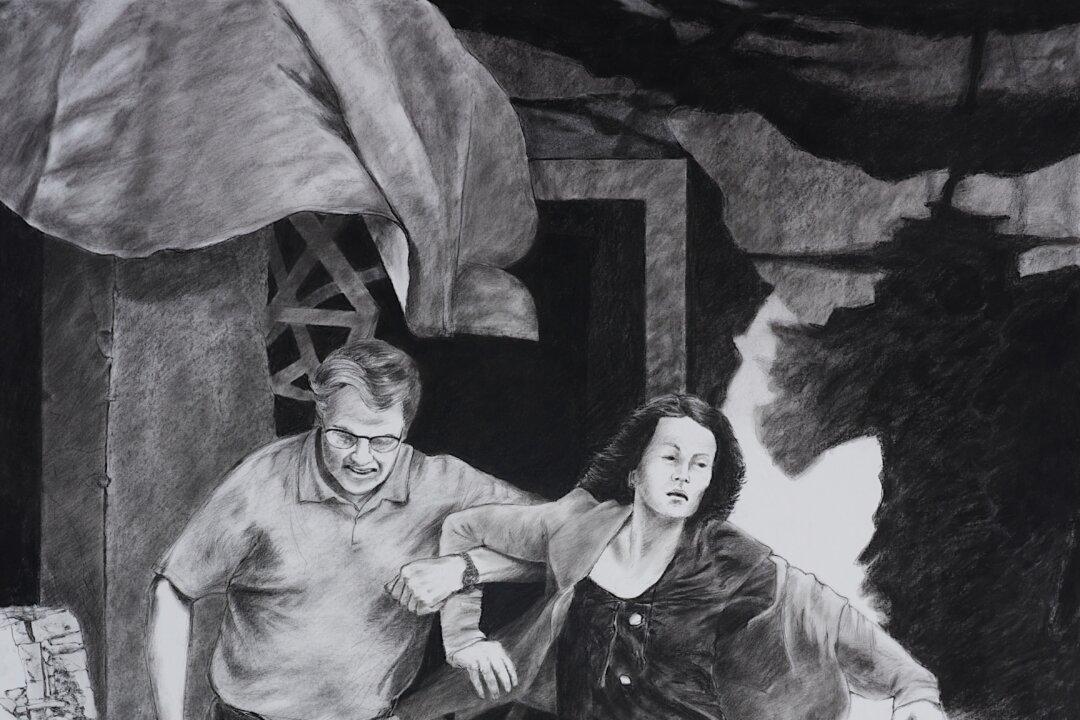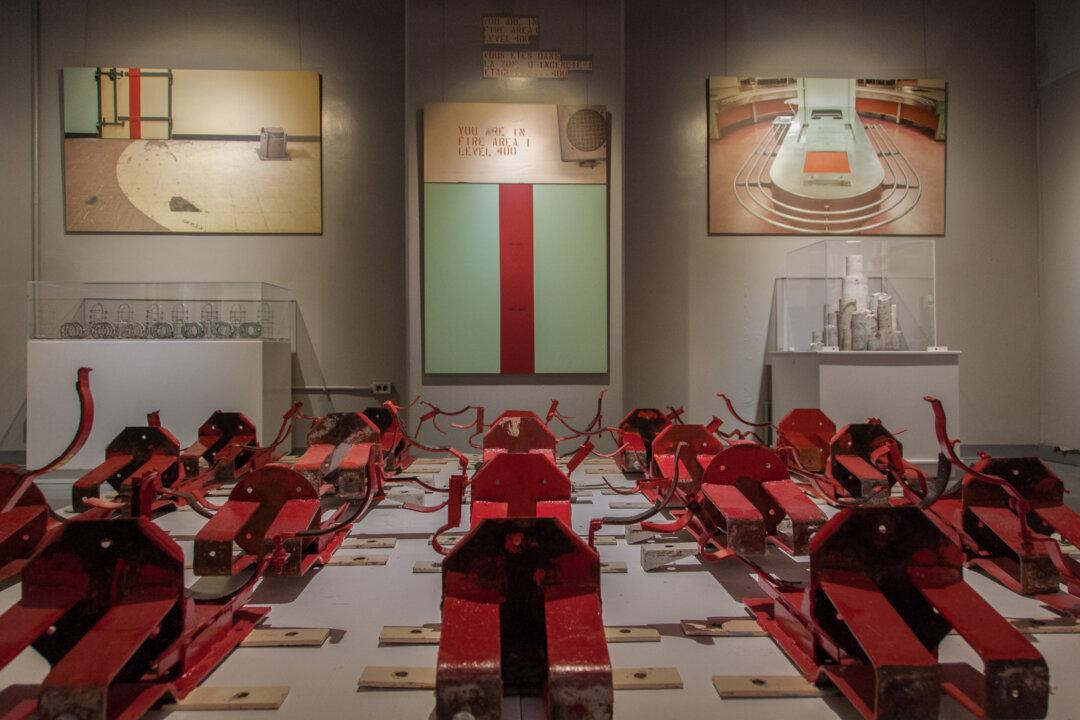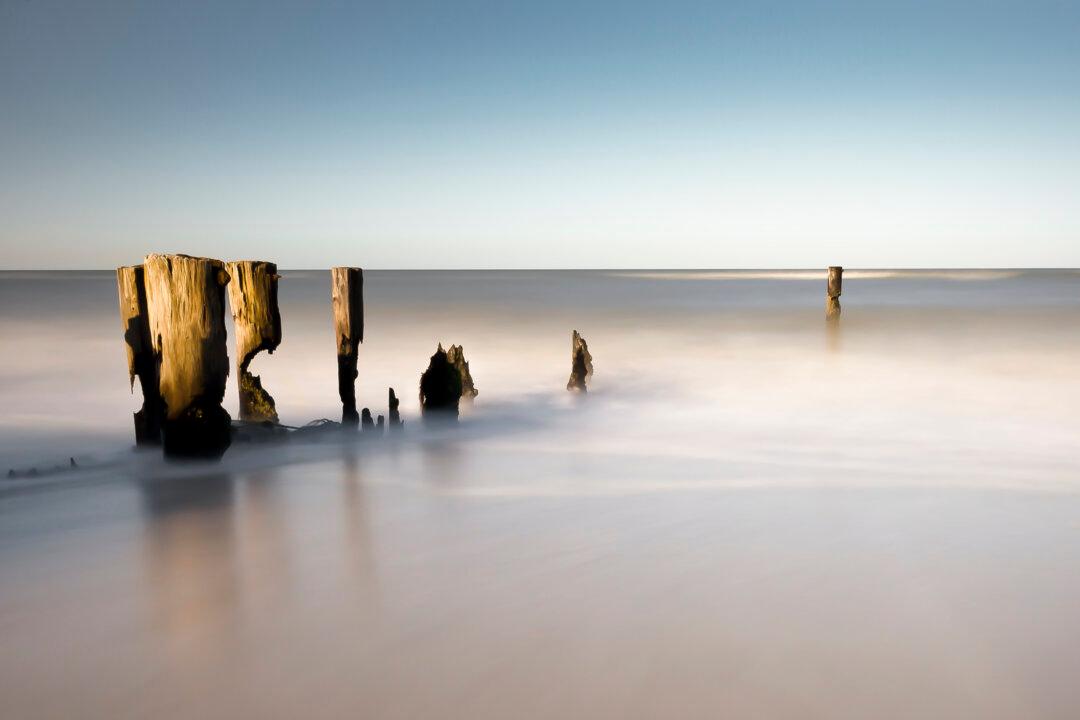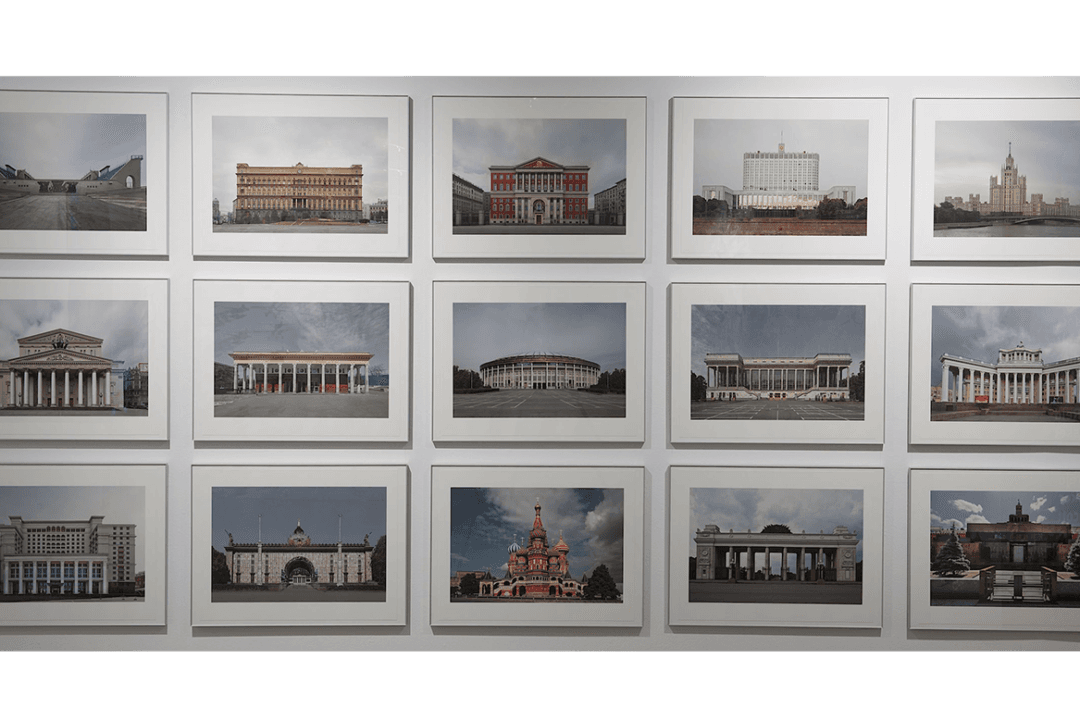In his work as a researcher for Human Rights Watch, Samer Muscati travels the world. Much of his work concerns women’s issues. He is also a skillful photographer. That, too, is part of his work. “The Unfinished Revolution,” an exhibition currently showing at the Human Rights Research and Education Centre at the University of Ottawa, makes plain the value of Muscati’s photography.
The photographs include imagery from Africa, the Middle East, Cambodia, and Canada. In all, there are 34 photographs from eight countries that have been selected from ongoing investigations.
A fearful street mural is the subject of one large Libyan photograph. Painted on the side of a building, the mural depicts a fighter, with bared teeth, holding a Kalashnikov rifle aloft. He is draped in ammunition and wears a Libyan flag pendant. Off to the left of the photograph, a veiled woman stands. She does not look at the mural. Why would she?




